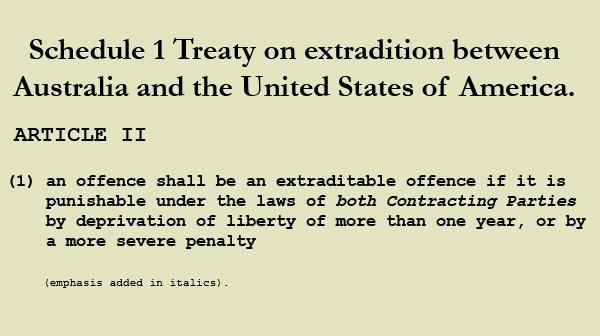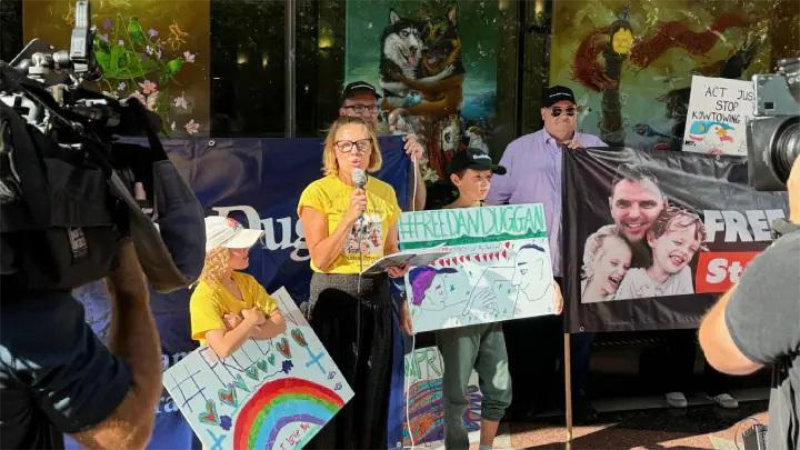Dan Duggan has languished in jail for almost two years facing extradition and 65 years in a US prison after he trained Chinese pilots 12 years ago. However, there are signs the Americans won’t ultimately get their hands on him. Andrew Gardiner reports.
There was some rare good news last week for Australian pilot and former American marine Dan Duggan in his battle to stave off up to 65 years in a US federal prison on charges of conspiracy, arms trafficking and money laundering. The charges, stemming from the training of Chinese pilots more than a decade ago, were dropped on Duggan at the last possible moment in late 2022. But sources close to the case told MWM they may not be enough to trigger Duggan’s extradition.
Currently before Magistrate Daniel Reiss at Sydney’s Downing Centre Local Court, the sources say the extradition request will likely be granted at a hearing scheduled for 24 May before an appeals process kicks in. The question is, what happens after that?
The Federal Court appeal and NSW Supreme Court bail applications offer Duggan his best chance at eventual freedom, according to our sources.
Contesting the extradition
Grounds on which Duggan’s extradition can be contested include the “double criminality” rule, in which Duggan – an Australian who renounced US citizenship in 2012 – cannot be extradited on charges arising from US laws that have no equivalent here. There’s also the argument Duggan faces “political charges” stemming from a 2017 chill in China-US relations which was five years away when Duggan trained Chinese pilots in 2011-12. One source added:
Once the extradition gets [appealed] to the Federal Court, it’s likely that the charges, the extradition legislation, and the [Australia-US] treaty on which they rely won’t stand up to proper scrutiny.
Duggan’s family says he was blindsided by his 2022 arrest, having had no idea he’d been remotely close to breaking any laws. “Dozens of ex-pilots have trained Chinese aviators, including other Australians, using materials that are openly available to all.
Why has Dan, a sole Australian citizen for more than a decade, been singled out like this?” former China correspondent, regular MWM contributor, and member of the Free Dan Duggan Campaign Michael Sainsbury asked.
The arrest in an Orange, NSW, car park followed Duggan’s return to Australia to secure ASIO clearance for an Australian aviation security identification card. His supporters insist the proffered clearance was part of an “unlawful lure” to set up his arrest, but the Inspector General of Intelligence and Security (IGIS) has at least partially cleared ASIO of impropriety.
Despite having no criminal record here or overseas, Duggan finds himself effectively in solitary confinement in a two-by-four metre cell under a strict inmate regime called Protection Non-Association (PRNA). All this in the maximum security prison at Lithgow, NSW, recently described as the place “where Australia’s worst murderers, rapists and gangsters spend their days.”
Family under siege
And let’s not forget his family. Partner Saffrine and their six children, aged 7 to 20, have had their lives torn apart by the US charges; their seven-bedroom home near Kiama, NSW, was later seized by Federal Police under a US restraining order which deprived the Duggans of the means to pay for their legal defence.
The move to seize their property within hours of its sale followed what Saffrine believes is round-the-clock phone-tapping by ASIO. She told MWM:
This is an example of a weaponised legal system that has little regard for freedom or the rights of individuals or families.
As to what this says more broadly about Australia, Saffrine doesn’t hold back: “Our government is simply a US lapdog, particularly in the shadow of AUKUS. The Attorney-General [Mark Dreyfus, who signed off on the extradition] is getting advice from a department which has deep links with both the US and ASIO.”
MWM contacted Mr Dreyfus for comment last week, without reply.
Legally tenuous?
On close inspection, the attempted extradition and the possible life imprisonment of 55-year-old Dan Duggan in the US appear to be equal parts Get Smart and Keystone Cops, Duggan’s supporters say. The case has got all the elements of what would be a rib-tickling legalistic comedy, they point out, except the stakes are serious.
According to ‘Team Duggan’, the Australia-US extradition treaty alone should have long since put paid to what they see as a travesty. If applied to the letter, they say, Article II alone would seem to render extradition a non-starter as there are no identical conspiracy, arms trafficking or money laundering offences on our statutes.

Coupled with what Team Duggan calls the “political” nature of these charges (a stumbling block under our Extradition Act) and their demands for the kind of “due process” that is standard in the US (but not in extradition matters here), one could be forgiven for thinking it was reckless to the point of lunacy for Washington to try this extradition in the first place.
But this is the US Government – which flexes its muscles when and where it wants if history is any guide – backed up by what appear to be all-too-willing accomplices in Canberra.
“Imagine the pressure our courts feel with the weight of their own government – and that of a global superpower – on their backs,” one observer told MWM.
If the extradition happens, it wouldn’t be the first judge or magistrate who dons the Green and Gold and buckles to power.
Team Duggan remains confident the extradition will be blocked after it proceeds to the Federal Court on appeal, sees the mainstream media light of day and is thoroughly examined by senior legal professionals, or ‘silks.’ But they remain outraged at the discretionary application of what officials see as the law by anyone from the US officials who in 2017 put together a sealed, secret indictment Duggan had no knowledge of to the ASIO staff who, they say, lured Duggan to his arrest on shady pretences.
“Stuff like this only happens when powerful institutions, given carte blanche by even more powerful governments, become laws unto themselves with the hubris to do whatever they want,” one source told MWM. “They want to make an example of [Duggan] as a deterrent to others who might want to train Chinese pilots or aid Beijing in some other way, legal or not,” he added.
Worst of all, they don’t seem terribly bothered by whether what they’re doing is legal or not.
Unintended consequences
The broad legal framework that allowed authorities to deny Dan Duggan his freedom and decimate his family could threaten other Australians on a geopolitical whim. Just ask Alexander Csergo, currently languishing in a NSW prison after allegedly writing reports for Chinese interests largely from open sources, or Shayne Chester, whose misconstrued Tweet about police go-slow tactics following a bomb threat against a pro-Palestinian saw around 20 NSW police burst in, pin him against a wall and ransack his home.
“At the stroke of a pen in Washington or Canberra, usually dormant legislation can be applied selectively, secretly and with no transparency to Australian citizens, without their knowledge until it’s too late,” Saffrine Duggan told MWM.
First, they came for Dan Duggan, and most of us said nothing. While you are reading this, you could already be next.
“An Awkward Problem”: Julian Assange and the Australian dog that didn’t bark
An Adelaide-based graduate in Media Studies, with a Masters in Social Policy, I was an editor who covered current affairs, local government and sports for various publications before deciding on a change-of-vocation in 2002.

